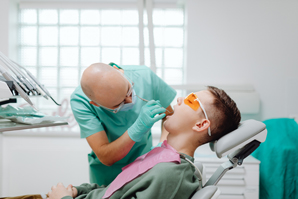Are you suffering from excruciating pain in the teeth, gums, or jaw? Or are you experiencing severe bleeding from the gums? These are some of the apparent signs that you may need oral surgery. But there are other symptoms, too, that might not be this obvious. A visit to your dentist to evaluate your situation with the aid of imaging and other diagnostic tests can help you decide.
You may need oral surgery if you have an infection in your mouth that won't go away or a broken tooth causing pain or discomfort. Routine appointments with your dentist can help you identify potential problems before they become emergencies. If you are between appointments, keep the following signs in mind, which may indicate the need for oral surgery.
Loose Teeth
Poor gum health or impact trauma can cause teeth to loosen or fall out. Deficient bone density can also cause teeth to loosen and, in the long run, can change the shape of the face. Loose teeth make chewing and eating difficult. A dentist will look at your underlying bone density and assess the cause of loose or missing teeth. If required, they may perform oral surgery and restore your smile and health.
Impacted Teeth
The last set of molars is the most likely to become impacted. People usually get these teeth in their late teens or early twenties, commonly called wisdom teeth. Often, wisdom teeth do not fully emerge, infecting and decaying the surrounding area. Sometimes, wisdom teeth can also cause persistent pain, swelling, or fever. Furthermore, impacted wisdom teeth can cause permanent damage to neighboring teeth, gums, and bone, as well as the formation of cysts or tumors that can destroy sections of the jaw.
Contact your dentist immediately if you feel an unusual amount of pressure or pain in the back of your mouth, where the wisdom teeth would be.
Jaw Pain or Misalignment
If you can see that your jaws are misaligned—perhaps your overbite or underbite is getting worse, or your teeth are out of alignment—you should see your dentist right away. Some jaw problems are treatable with orthodontic appliances such as braces, while others necessitate oral surgery.
Moles and Unusual Growth
Sometimes, facial moles or skin abnormalities can also indicate the presence of an oral disorder. If your moles start to change shape, have irregular borders, are multicolored, or you're developing new ones, please take a moment to schedule an examination with your oral health care professional. A dentist can examine those growths and, if necessary, take a biopsy to determine if oral surgery is the next step in removing the growth.
Persistent Facial Pain and Headache
Persistent facial pains and headaches are called Temporomandibular Joint Disorders (TMJ)—a dysfunction of the joint connecting the jawbone to your skull. This joint allows you to move your jaw up and down and side to side, allowing you to talk, chew, and yawn. Most of the time, oral medications, splints, and physical therapy can effectively treat this disorder, but surgery may be required in some severe cases.
If you are suffering from one of the above symptoms, you should visit a dentist as early as possible. At Grand Ledge Smiles, we are family-friendly and experienced in using modern technology and treatments. We are committed to providing you and your family with the best possible dental treatment. Contact us today for more details.

